Series – Shikata ga nai: Sansei Forgiveness in a Broken World
For most of us, our whole world was broken for three generations. I am a Sansei who has struggled with the silence and found home at last near the end of my life. Mark Sakamoto’s book title “Forgiveness” is the most meaningful word for me, although the context is totally different. This series depicts my past, as a young woman who was ashamed of being Japanese to my present, as a woman who has finally learned to forgive and let go the burden of shame carried by all Japanese Canadians who were dispossessed and relocated. When I look at my work, I see a clear dichotomy of who I am. I value being Japanese so I have chosen to work primarily with Japanese papers and Japanese ink. Yet, the pen and ink technique is western, not Japanese sumi painting. Even now, I feel like an outsider in both cultures; yet totally comfortable looking in.
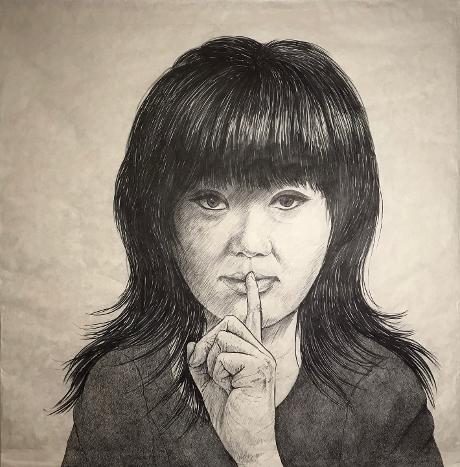
#1 Keep the Past in the Past Pen and ink on shoji paper, 39"x39"
Shikata ga nai. Don't talk about what happened. I grew up feeling that it was a bad thing to be Japanese Canadian.
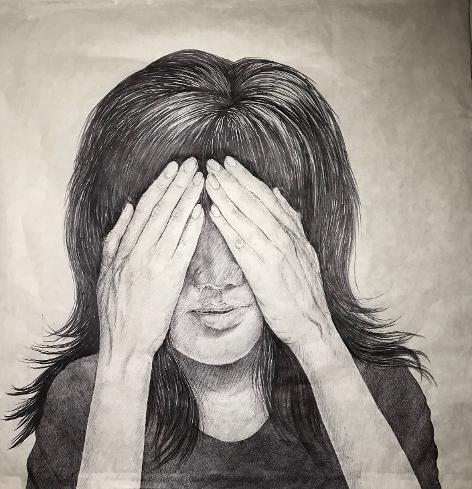
#2 Eyes are the Enemy Alien Pen and ink on shoji paper, 39"x39"
I hated my eyes, as they were the most obvious feature which made me different.
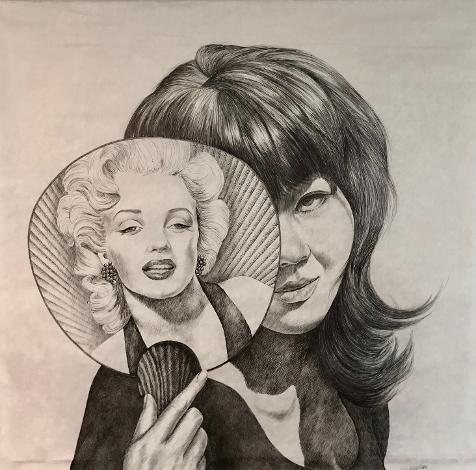
#3 Wannabe Pen and ink on shoji paper, 39"x39"
More than anything, I wanted to be white and I hated being Japanese. Here I want to be Marilyn Monroe. It took me my entire life to forgive the broken world of the past and love who I am.
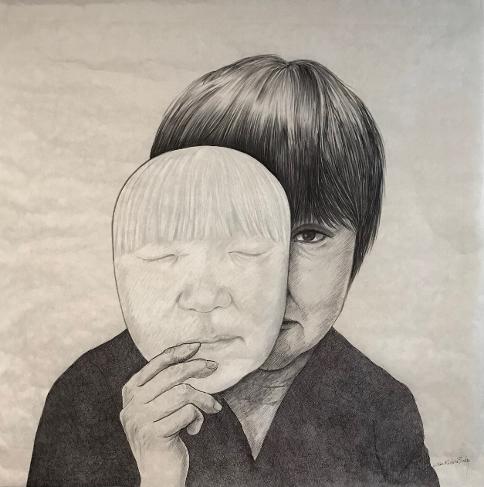
#4 Death Mask: End of My Line Pen and ink on shoji paper, 39"x39"
I married outside of my culture, as did 95% of Sansei. I am the last of a long line which stretches back for thousands of years. This revelation boggles my mind!
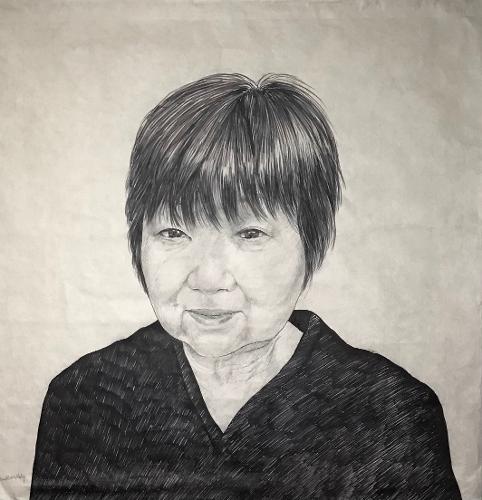
#5 Unmasked Pen and ink on shoji paper, 39"x39"
I finally find closure near the end of my life. I have learned to forgive myself for hating myself. I no longer feel that my eyes are hateful.
Installation Stone Cold Memory in Zen Haiku Garden
The inspiration for this installation is reflection in the tranquility of a zen garden. It speaks to the catastrophic journey of Japanese Canadians from Dec. 7, 1941 to final closure in the present. Shikata ga nai(It Can’t be Helped), the mantra of the Issei and Nissei is cracked open as the silence about the past is broken. The circle is symbolic of closure. The haiku represent the events in our journey.
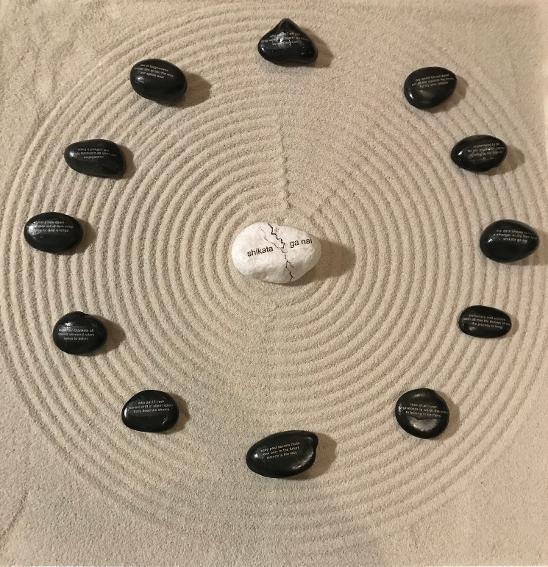
HAIKU JOURNEY ON STONES
my world blown apart
act of war against my home
by my own people
atonement to be
for my ancestral Japan
resting in my hands
my dark shame to bear
a stranger in my own land
shikata ga nai
persevere, survive
with all that life throws at me
the journey is long
loss of all I own
forgiveness is worth the price
to belong once more
keep past secrets mute
look only to the future
silence is the way
who am I? I ask
sansei drift in silent space
bury deep the shame
black rain blankets all
covers ancestral cities
ashes to ashes
at last a new dawn
hope shines out of dark exile
redress for past wrongs
assimilation
will soon be complete for us
left without a trace
out of forgiveness
sansei see at last the way
our spirits soar
who are we? we ask
deep within our hearts we know
we are Canadian
Signature Image for Iki:breath, Old Town Hall Gallery, Newmarket Ontario

Mixed Blessings Ink Drawing on Shoji Paper, 2020
It has taken me most of my life to finally breathe in. I have forgiven myself for my choices in my long journey to come to terms with injustice, loss, and my own denial of being a Canadian with Japanese ancestry.
My children and my grandchildren are the best part of me. They are also the end of my Japanese heritage, both genetically and culturally. They mark the end of my Japanese line. But I celebrate the fact that they are a new kind of people – children of the world. My grandchildren carry the DNA of ancestors from far corners of the world – Japanese, English, Irish, French, Scottish, Dutch, German, Jamaican, Egyptian, African, Polish.
My family are no longer hyphenated Canadians. We are simply Canadians.